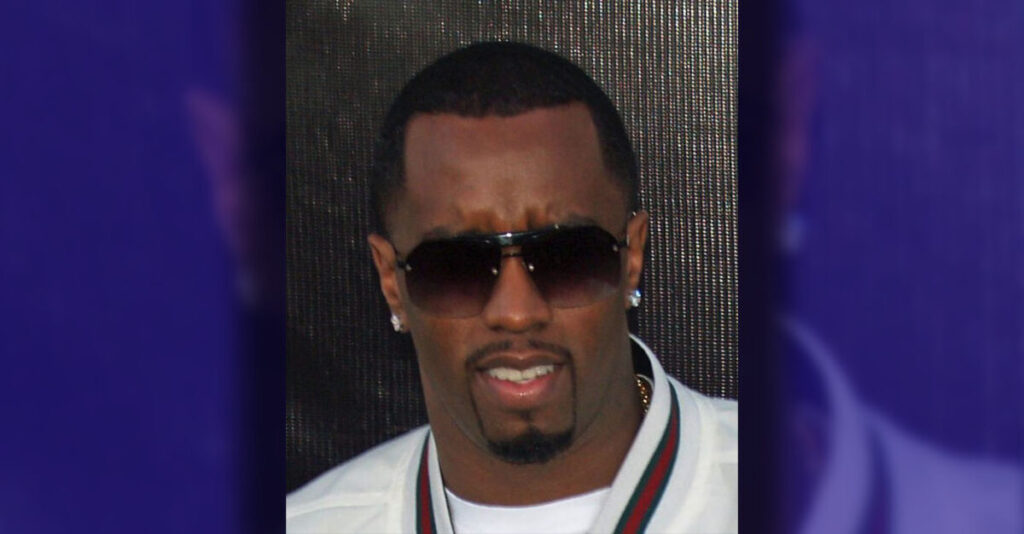By Stacy M. Brown
NNPA Senior National
Correspondent
As Sean “Diddy” Combs faces a federal sex trafficking case and the slow unraveling of his once-untouchable legacy, a larger question looms: Is this the moment the music industry finally confronts its darkest secrets?
It started with a Reddit post that didn’t just speculate on Diddy’s fate but questioned the very foundations of the culture that made him: “How much damage could Diddy do to the state of hip hop?” the user asked. “Supposedly, he has incriminating evidence against those who attended his parties. The same parties that had a lot of bad things happen, to say the least.”
The implication was chilling—if Diddy were to cooperate with federal authorities, the fallout might not stop at his feet. Names floated in the post—Jay-Z, Beyoncé, Usher, Justin Bieber—aren’t confirmed in any court filings, but their inclusion highlights the breadth of Diddy’s influence and the potential reach of any revelations. If even a fraction of the speculation proves true, the reverberations wouldn’t stop at hip-hop—they’d hit every corner of the music industry.

For his part, Combs denies all allegations. His legal team has described the now-infamous “freak-offs” as consensual encounters, part of his non-monogamous lifestyle. But prosecutors allege something much more sinister: a criminal enterprise powered by the machinery of his music and business empire—one that trafficked women, coerced labor, obstructed justice, and used influence and intimidation to maintain control.
Still, for all the headlines Combs generates, his alleged crimes do not exist in isolation. The music industry has long tolerated, enabled, and even glamorized behavior that would trigger career-ending consequences in other arenas. Diddy’s story might be shocking—but it’s not new.
Rock music has its own rogue’s gallery. Jerry Lee Lewis nearly destroyed his career in 1958 after marrying his 13-year-old cousin. Elvis Presley met 14-year-old Priscilla Beaulieu when he was 24 and later moved her into his home in Memphis. In more recent years, Aerosmith’s Steven Tyler faced (and ultimately evaded) a lawsuit from a woman who says he sexually assaulted her in the 1970s when she was 17.
A judge dismissed the case due to the statute of limitations. Phil Spector, the genius producer behind the “Wall of Sound,” died in prison after being convicted of murdering actress Lana Clarkson. Gary Glitter was convicted of possessing child pornography and later child sex abuse. Kid Rock and Creed frontman Scott Stapp were filmed with strippers in a sex tape that leaked online in 2006. A new biography of the Rolling Stones claims Mick Jagger had sexual relationships with at least two of his male bandmates, raising further questions about the power dynamics inside even the most celebrated groups.
Journalist Ann Powers, writing for NPR, once noted that the “history of rock turns on moments in which women and young boys were exploited in myriad financial, emotional and sexual ways.”
Powers added: “From the teen-scream 1950s onward, one of the music’s fundamental functions has been to frame and express sexual feelings for and from the very young… relating to older men whose glamour and influence encourages trust, not caution.”
This brings the spotlight back to Diddy—not just as an accused individual but as a symbol. He was once the archetype of success: Harlem-born mogul, founder of Bad Boy Records, and kingmaker behind artists like Notorious B.I.G., Faith Evans, Ma$e, 112, and French Montana. He transformed hip-hop into a global business and amassed influence far beyond the recording booth. He sold more than 500 million records, earned multiple Grammy Awards, and was honored by MTV, Howard University, and the City of New York—until those honors were swiftly revoked after a video surfaced showing him physically assaulting singer Cassie Ventura.
Ventura, his longtime partner and protégé, has accused Combs of brutal physical abuse and psychological control. Her lawsuit and the video evidence ignited a wave of allegations from other women and men, describing similar patterns of coercion, manipulation, and fear. “This is not just about bad behavior. This is about systemic exploitation and abuse made possible by fame, money, and silence,” said one advocate for survivors in the entertainment industry.
While hip-hop has long been a target of criticism for misogyny and violence, what’s now being laid bare is a broader, genre-defying truth: from rock and pop to hip-hop and beyond, the music industry has operated for decades without accountability for its biggest stars.
“Sex isn’t the problem,” one Reddit user responded. “Coercion via job opportunities is.” Another added, “Zero [impact], just like R. Kelly and MJ did zero to R&B,” referencing the R&B superstar’s conviction and Michael Jackson’s controversial legacy. Others argued hip hop would endure, regardless of Combs’ fate. Maybe it will. But the Diddy scandal pulls back the curtain—not just on the parties, the rumors, or the headlines—but on an industry-wide culture that has, for too long, allowed power to shield predation.
As one survivor put it outside a recent court appearance: “This isn’t just a hip hop problem. It’s not even just a music problem. It’s a power problem.” And now, the music industry has to decide: Will it finally tune in, or will it keep playing the same old song?




